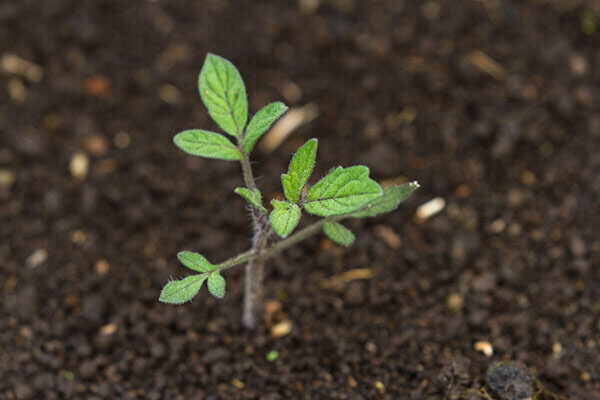Your Soil’s Story: What Needs to be in it
Dirt or soil, whatever you call the brown stuff that fills your gardens, you probably don’t think about it too much. That could be for any number of reasons, but probably because you think that you don’t have to think about it. But you should, at least if you want your trees to be happy and healthy. Of course, the rest of your yard will be happy if you can take care of the soil as well.
Great soil not only helps your trees stay healthy, but it will help with watering, fertilizing, mulching, and will generally make the rest of your yard look great. Not to mention, you will probably have to spend less time working in your yard.
So, what exactly needs to be in your soil? Let’s take a look:
4. Potassium
- Keeps fluid moving through your trees
- Activates Enzymes
- Should make up the largest part of your soil.
Potassium will make up one of the largest portions of your soil, and with good reason. It is absolutely essential for the growth of your tree, especially if we go for a longer period of dry weather. Potassium keeps your trees hydrated and can even offer some protection against the heat. With younger trees, it can help with the growth and formation of the root system as well.
Potassium is important for a number of reasons, but the main one is that, according to the Northeast Organic Farming Association, “Potassium is the Great Regulator. It is active in numerous enzyme systems which control metabolic reactions, particularly in the synthesis of proteins and starches. Micronutrients, which have similar functions, are required only in minute amounts. In contrast, potassium must be present in large quantities, although it seems to be completely unsuited for its role.”
If you don’t have enough Potassium in your soil, you will start to notice that your leaves and the stems are wilting and just don’t look as green as they should. Luckily, there are many ways to improve it, including by adding compost to your soil. Try to use compost that has many vegetables and fruits – especially bananas. If composting isn’t something that you want to do, you can also add wood ash, but this could add other problems as well.
3. Phosphorous
- Creates strong roots
- Helps with fruit development
- Allows tree to gain nutrients
Phosphorous is another important nutrient for your soil to have, and naturally is should have pretty much. This is one of the most critical element of your soil because it helps with the physical development of your trees, starting from the roots up. If you are just planting a new tree, Phosphorous is even more important because it will enable your roots to grow stronger, deeper, and wider, which will make your tree sturdier, according to the University of Minnesota.
If you want to add Phosphorus to your soil, you may want to invest in animal meal. You do have to be careful because you want quality animal meal that has not been treated with antibiotics. How do you know if you need Phosphorus? The leaves of your plants and trees will have purple splotches all over them and you may have stunted fruit development.
2. Nitrogen
- Helps with photosynthesis
- Necessary in trees with flowers
- May use manure if you do not have enough in your soil
Photosynthesis is one of the most important things your tree will do each day. It helps your tree to bloom, respond to injuries, and just stand tall. However, it requires a lot of nutrients from your soil to successfully complete the process. One of the most important parts of that process is Nitrogen, according to Hunker.
Nitrogen is also important when the tree is growing because it helps with protein and the development of fruits and buds.
If you do not have enough Nitrogen in your soil, or you just think that you need some more, you can add it with manure – especially poultry manure. How do you know you don’t have enough? The leaves of your plants will turn yellow or brown.
1. Air
- Keeps air moving through soil
- Makes deep watering more effective
- Stops compaction
“According to the Morton Arboretum, “When soil is compacted, the number of large pores decreases and the number of small pores increases. As Coder writes, “The total pore space of soil being compacted initially increases as more capillary pores are created and as aeration pores are lost. With continuing compaction, total porosity declines and oxygen diffusion rates plummet. The pore sizes which fill and empty with water and air are most impacted by compaction.”
Why is compaction such a big deal? It makes it difficult for the roots of plants to get the nutrients and water that they need to survive. Even worse, they can trap the water in the upper levels of the soil, making it impossible for deeply rooted plant life to get water – like trees.
Of course, soil that naturally has air in it will be better than bought soil that does, but in the end, the amount of air is the most important.
Your soil is one of the most important components of the health of your trees. Even if you know what your soil is like, it can change with some weather patterns or if you use certain chemicals in your yard.
Whether you have one tree or many trees, a line of shrubs or a single one, you don’t want to allow your trees to stand without getting some help. We can help you there, with everything from regular maintenance to see if your tree is experiencing any problems or with the pruning and cutting of your trees. We can even work with you during the planting stage, when your soil is most important.
Give us a call today at (269) 216-6811 and we can set up a time to visit you and your trees.


